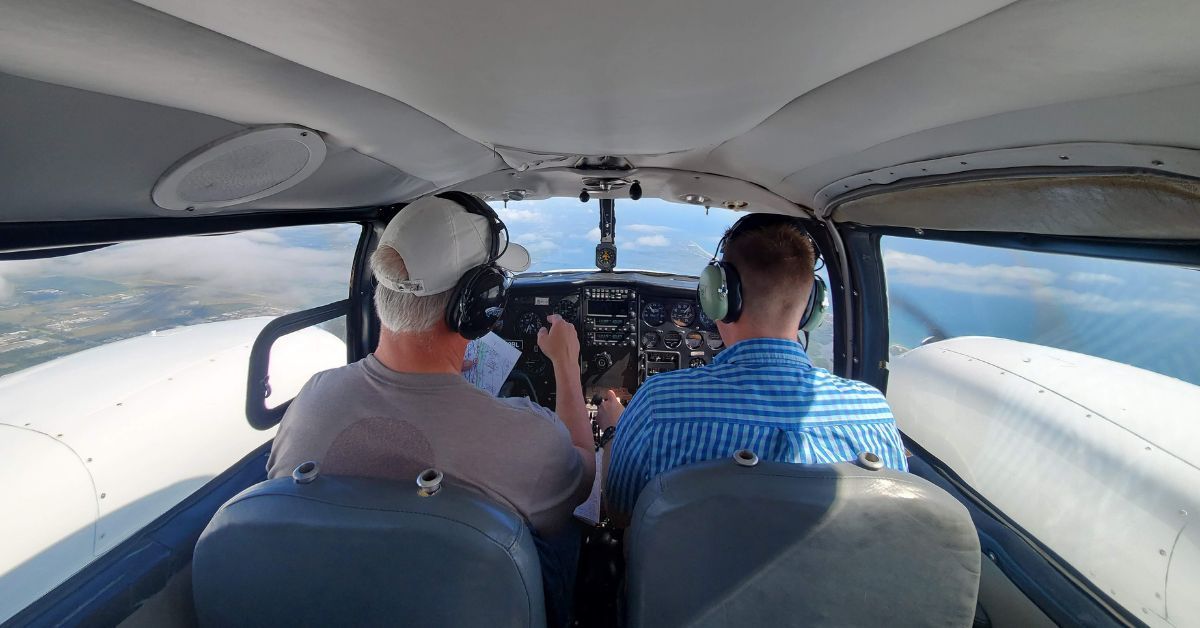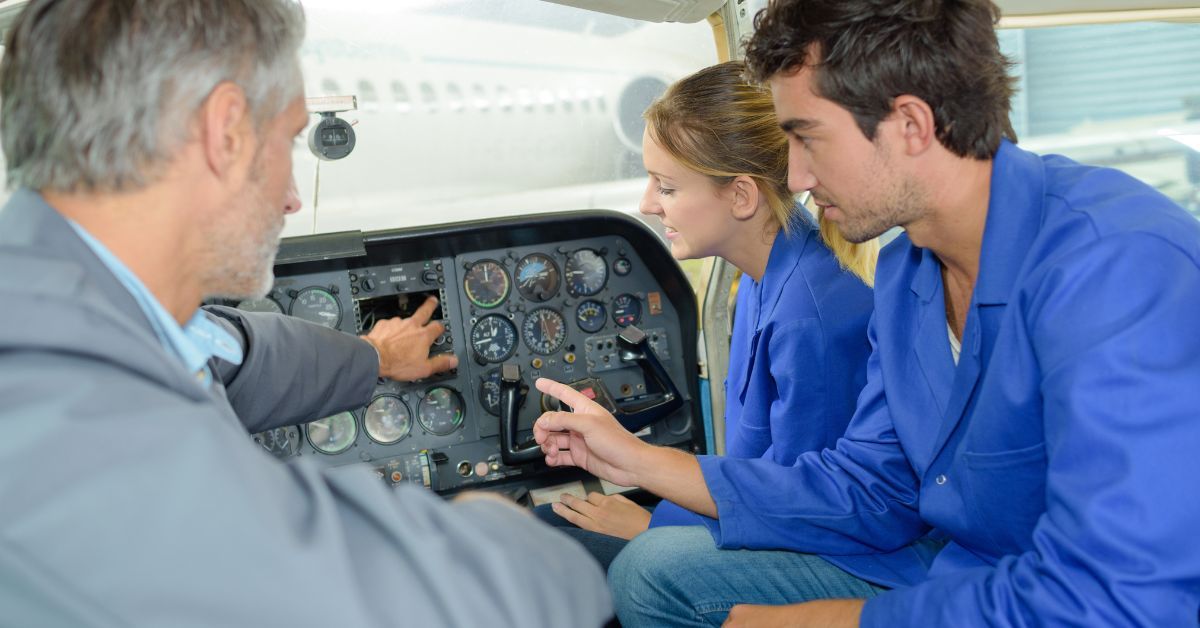How To Prepare for Your First Flying Lesson
Have high-flying dreams and decided to make them a reality through flight school? Good for you! Now, are you ready for your first flying lesson? No doubt you’re feeling equal measures of fear and excitement and maybe a little uncertainty about how to prepare. Don’t worry. Here’s a quick and helpful article about how to prepare for your first flying lesson. We’ll provide the tools you’ll need to know what to expect and how to make the lesson a success!
What Will Happen During the Lesson?
Knowing what will happen during your first flying lesson eases pre-flight jitters. Typically, it begins with a flight instructor briefing. They’ll cover the basics, including safety procedures, a walkthrough of the aircraft’s controls, and what you’ll do during the flight. After the briefing, you’ll enter the aircraft, buckle up, start the plane, taxi to the runway, and, in most cases, handle the controls once you’re in the air. Throughout the flight, your instructor provides guidance and backup, ensuring you’re comfortable and safe. If there’s an emergency, they can easily take over.
Gather the Necessary Documents
Ensure you have completed all the paperwork and that you have the necessary documents with you before entering the plane and taking off. You must present several things before you’re allowed to fly. First, the instructor will ask you for your identification, which could be a driver’s license, passport, or similar government-issued piece of ID.
Your flight school may enroll you in the FAA Integrated Airman Certification and Rating Application (IACRA) system if you’re taking lessons in the United States. This process creates an account in the FAA database and ensures you’re set for future flight training milestones.
Most likely, you’ll have to sign several waivers or agreements. Double-check with your flight school beforehand. It’s also a good idea to bring other materials the school provides. Some may require a checklist or handbook.

Dress Right
Unless your flight school has some sort of uniform or other required form of dress, there’s no specific way to dress for flight. Still, keep your clothing sensible, practical, and comfortable. It gets a little warm up there, so dress in lightweight fabrics on hotter days. On cooler days, bring a jacket, but get ready to take it off should things heat up inside the cockpit. Sunglasses don’t just look cool; they protect your eyes from the sun’s glare and make it easier to read the control panel instruments and gauges, as well as see any obstacles on the flight path. Keep your footwear comfortable and flat. No chunky heels and soles or open-toed sandals. Snug sneakers and shoes with thinner soles allow you to feel the pedals and control them better.
Familiarize Yourself With Aviation Basics
Your instructor is there to help, but don’t rely on them completely to provide basic information. Make sure you have the basics of aviation down. Study up on simple aerodynamic principles such as lift, thrust, drag, and weight so you and your instructor understand each other. Make sure you understand the plane’s key controls, namely the yoke (what you’d call a steering wheel in a car), rudder pedals, and the throttle and what they each do. Even if you’re still learning, you must know the basic terminology to make the most of the lesson. It makes better use of your and the instructor’s time if you don’t need to rehash the basics during the flight. Need a refresher on what you learned in class? Try the internet’s best “classroom,” YouTube. Plenty of basic tutorials are available online to clarify points and help you review the basics. Additionally, you can read through your pilot’s handbook to lock it all down.
Prepare Mentally and Physically
It’s best to have your wits about you when you’re in the air. Get plenty of rest before the flight to ensure you’re alert and at the top of your game. Reschedule for a time when you have fully recovered if you’re ill. Eat a light meal beforehand—nothing too heavy or greasy—so hunger doesn’t distract you, and you don’t risk fainting, passing out, vomiting, or suffering from motion sickness. Feeling stressed? Practice mindfulness and meditation well before the lesson. Maintaining calmness and focusing on the job at hand will make the experience more fulfilling and enjoyable. Finally, visualize your success. Picturing a fun, informative, and successful first flight will put you in a better state of mind, making the whole experience more enjoyable.

Communicate and Ask Questions
Your instructor is there to help you become a pilot. Therefore, you must listen carefully and interact when appropriate. They can’t read your mind, so be sure to communicate openly about your fears, questions, and uncertainties. Asking questions shows enthusiasm and solidifies your understanding, whether it’s about specific controls, maneuvers, or procedures. Respect your flight instructor, but don’t be intimidated by them. Flight instructors are trained professionals who want you to feel comfortable and confident. Engaging in dialogue builds rapport, making the lesson more enjoyable. Remember, there’s no such thing as a silly question when you’re learning to fly!
Set Goals for Your Aviation Journey
While your first lesson is mostly meant to give you a taste of flying, it’s also a great opportunity to think about your goals. Think about how this first flight, and all the subsequent ones, will help you fulfill your goal, whether you’re a recreational flyer or want to pursue a career in aviation. Whatever your aspirations, having clear goals provides greater motivation and direction as you continue your flight training.
After the Flight…
So, you left the ground, flew for a bit, then returned to earth. What’s next? Reflect on the experience! How did you feel during the flight? Were there specific parts you enjoyed or found challenging? Jot down these thoughts and share them with your instructor during your next session. Doing so will help them tailor future lessons around your strengths and areas for improvement. Learning to fly is a process, and taking stock helps you become a better pilot!
That’s how to prepare for your first flying lesson. Knowing what to expect helps you focus, stay confident, and enjoy the incredible experience of flight, whether you want to earn a pilot’s license in Colorado or are just getting a taste of aviation!
